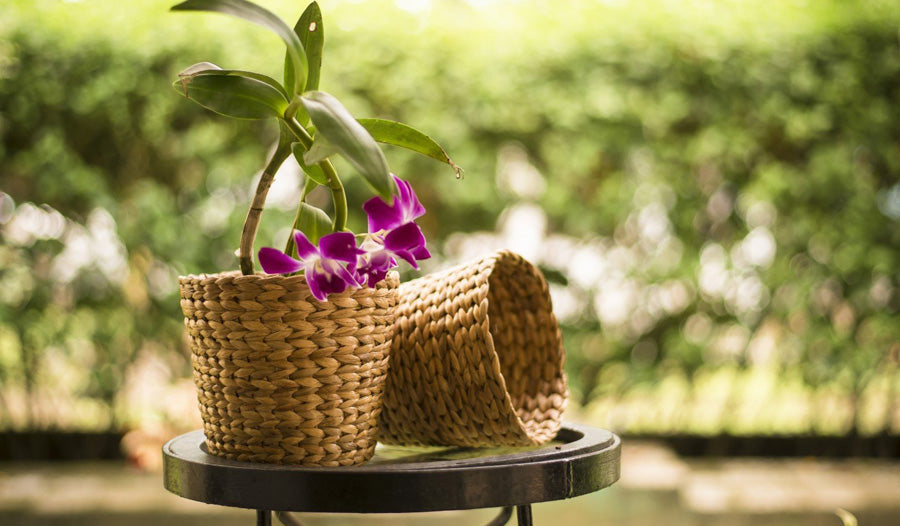
Water Weed to Home Décor

“The first day seemed a gamble” say Richika Agarwalla and Noopur Keshan, co-founders of Asama Enterprise LLP, remembering 5th October 2020, when they asked local women to attend a training session in weaving dried water hyacinth stems at Alimur village in the upper reaches of the north-eastern Indian state of Assam. “A few took the training. Then gradually their numbers increased for subsequent sessions. And now, we receive a few applications for joining Asama every day!”, say the young women.
Richika, a chartered accountant working with PricewaterhouseCoopers, and her first cousin Noopur, a banker, left their jobs in 2020, to deep dive into the craft of water hyacinth weaving. Water hyacinth (Eichhornia crassipes) is a free-floating aquatic plant that tends to grow very fast and rapidly cover the surface of rivers, lake and ponds. In this process, it adversely affects the flow of water, blocks sunlight to the natural life that dwells in the water, reduces oxygen levels in the water and breeds mosquitoes.

Traditionally, the water hyacinth plants would be removed and used locally as compost in tea gardens producing world famous Assam tea. Yet, when Richika and Noopur came across artisans weaving baskets with dried water hyacinth stems they felt a little guidance would help the weavers to take the craft further. They thus founded Asama- that means unparalleled and also draws from the name of their home state of Assam, working from Richika’s family home in Alimur set amidst tea gardens.

Over the months the product range has expanded to span a range of stylish baskets, containers, mats, planters and trays. The women may take the dried and processed water hyacinth stems home to weave or weave at the Richika’s family home that she says is now a hub of activity! Richika and Noopur work with the artisans to co-create new designs, and also create customized products as per request. They are deeply fulfilled by the work saying the products speak of stories and hope; of working with indigenous resources; of the transformation of weeds to stylish crafts; of improving local environment; and of transformation of lives of rural women.
Written by Brinda Gill
Find out more about Asama on their website: https://asamaenterprise.com/
Instagram: @asama.enterprise
By Brinda Gill
